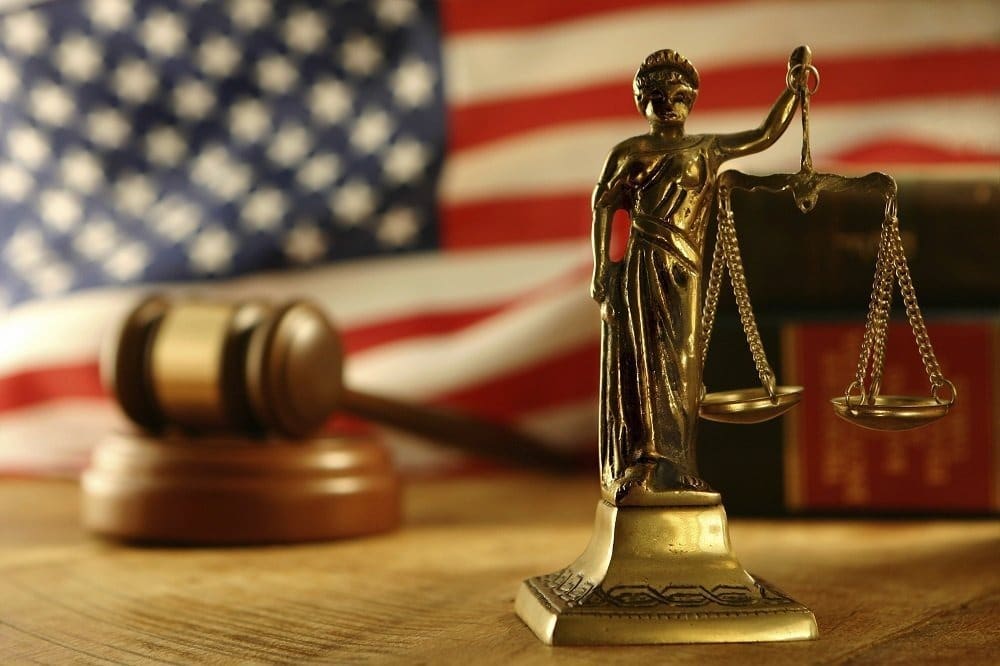Judicial Precedent
Courts adjudicate alleged violations
of and disputes arising under the
law. This often requires that they
interpret the law. In doing so, courts
consider themselves bound by how
other courts of equal or superior rank
have previously interpreted a law.
This is known as the principle of
“stare decisis,” or simply precedent. It
helps to ensure consistency and
predictability. Litigants facing unfavorable precedent, or case law, try
to distinguish the facts of their particular case from those that produced
the earlier decisions.
Sometimes courts interpret the
law differently.
The Fifth Amendment
to the Constitution, for instance,
contains a clause that “[n]o person…
shall be compelled in any criminal
case to be a witness against himself.”
From time to time, cases arose where
an individual would decline to answer
a subpoena or otherwise testify on
the grounds that his testimony might
subject him to criminal prosecution
— not in the United States but in
another country. Would the selfincrimination clause apply here? The
U.S. Court of Appeals for the Second
Circuit ruled it did, but the Fourth
and Eleventh Circuits held that it
did not.* This effectively meant that
the law differed depending where
in the country a case arose!
Higher-level courts try to resolve
these inconsistencies. The Supreme
Court of the United States, for instance, often chooses to hear a case
when its decision can resolve a division among the Circuit courts. The
Supreme Court precedent will control, or apply to all the lower federal
courts. In United States v. Balsys, 524
U.S. 666 (1998), the Supreme Court
ruled that fear of foreign prosecution
is beyond the scope of the SelfIncrimination Clause.**
This ruling became the law of the
entire nation, including the Second
Circuit. Any federal court subsequently facing the issue was bound by the
high court ruling in Balsys. Circuit
court decisions similarly bind all the
District Courts within that circuit.
Stare decisis also applies in the various
state court systems. In this way, precedent grows both in volume and
explanatory reach.
DIFFERENT LAWS;
DIFFERENT REMEDIES
Given this growing body of law,
it is useful to distinguish
among different types of laws
and of actions, or lawsuits, brought
before the courts and of the remedies
the law affords in each type of case.
Civil/Criminal
Courts hear two kinds of disputes:
civil and criminal. A civil action involves two or more private parties, at
least one of which alleges a violation
of a statute or some provision of common law.
The party initiating the lawsuit is the plaintiff; his opponent the
defendant. A defendant can raise a
counterclaim against a plaintiff or a
cross-claim against a co-defendant, so
long as they are related to the plaintiff’s original complaint. Courts prefer
to hear in a single lawsuit all the
claims arising from a dispute. Business litigations, as for breach of contract, or tort cases, where a party
alleges he has been injured by another’s negligence or willful misconduct,
are civil cases.
While most civil litigations are
between private parties, the federal
government or a state government is
always a party to a criminal action.
It prosecutes, in the name of the
people, defendants charged with violating laws that prohibit certain conduct as injurious to the public welfare.
Two businesses might litigate a civil
action for breach of contract,
the government can charge someone
with murder.
The standards of proof and potential penalties also differ. A criminal defendant can be convicted only upon
the determination of guilt “beyond a
reasonable doubt.” In a civil case, the
plaintiff need only show a “preponderance of evidence,” a weaker formulation that essentially means “more
likely than not.” A convicted criminal
can be imprisoned, but the losing
party in a civil case is liable only for
legal or equitable remedies, as explained below
Legal and Equitable Remedies
The U.S. legal system affords a wide
but not unlimited range of remedies.
The criminal statutes typically list
for a given offense the range of fines
or prison time a court may impose.
Other parts of the criminal code may
in some jurisdictions allow stiffer
penalties for repeat offenders. Punishment for the most serious offenses,
or felonies, is more severe than for
misdemeanors.
In civil actions, most American
courts are authorized to choose
among legal and equitable remedies.
The distinction means less today than
in the past but is still worth understanding. In 13th century England,
“courts of law” were authorized to decree monetary remedies only. If a
defendant’s breach of contract cost
the plaintiff £50, such a court could
order the defendant to pay that sum to the plaintiff. These damages were
sufficient in many instances, but not
in others, such as a contract for the
sale of a rare artwork or a specific parcel of land. During the 13th and 14th
centuries, “courts of equity” were
formed. These tribunals fashioned
equitable remedies like specific performance,
which compelled parties
to perform their obligations, rather
than merely forcing them to pay
damages for the injury caused by their
nonperformance. By the 19th century,
most American jurisdictions had
eliminated the distinction between
law and equity. Today, with rare exceptions, U.S. courts can award either
legal or equitable remedies as the
situation requires.
One famous example illustrates the
differences between civil and criminal
law, and the remedies that each can
offer. The state of California charged
the former football star O.J. Simpson
with murder. Had Simpson been convicted, he would have been imprisoned. He was not convicted, however,
as the jury ruled the prosecution failed
to prove Simpson’s guilt beyond a reasonable doubt. Afterwards, Mrs.
Simpson’s family sued Simpson for
wrongful death, a civil action. The
jury in this case determined that a
preponderance of the evidence
demonstrated Simpson’s responsibility for the death of his wife. It ordered
Simpson to pay money damages — a
legal remedy — to the plaintiffs.

